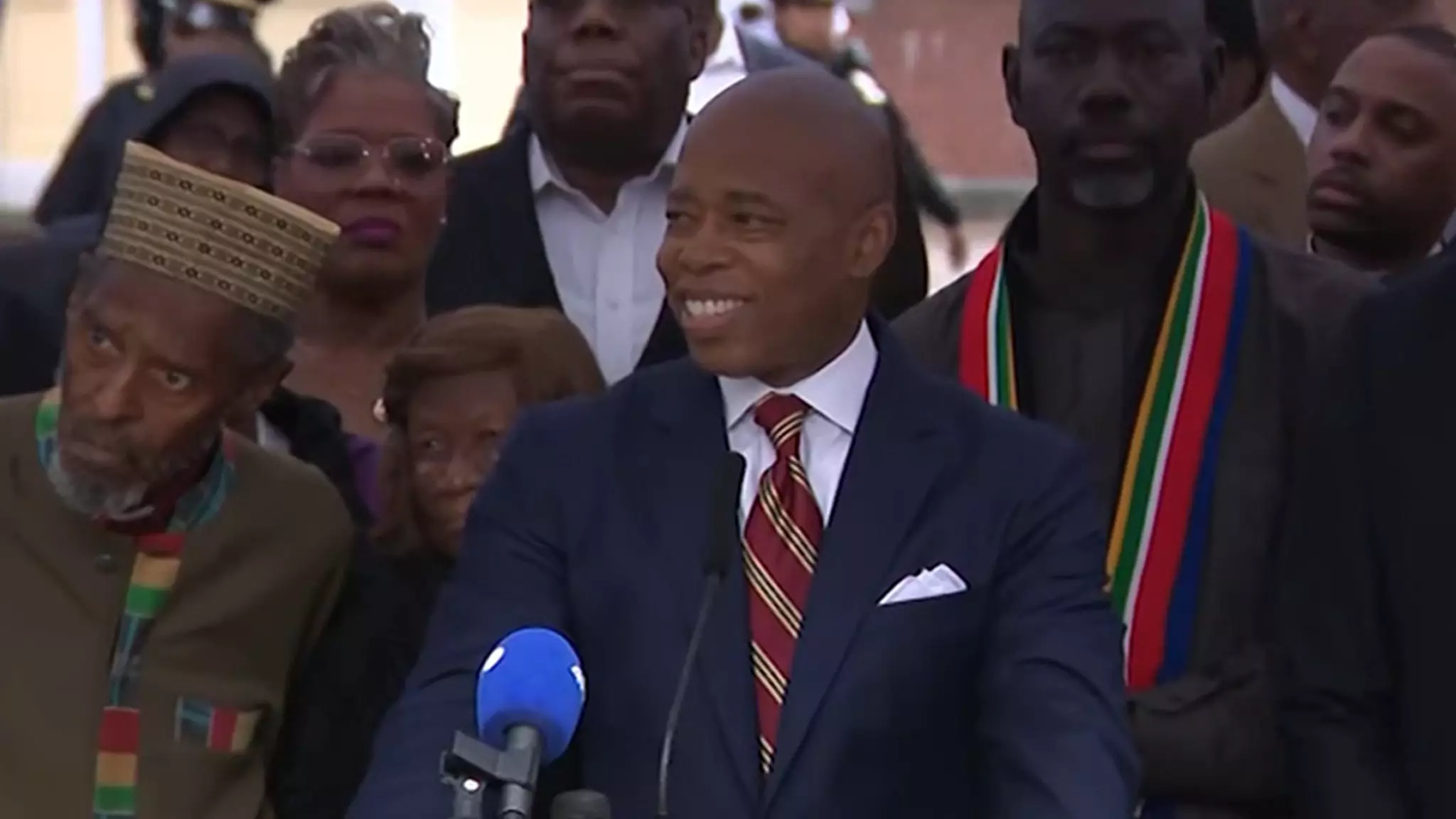In a significant turn of events, New York City’s Mayor Eric Adams has found himself embroiled in serious legal troubles following the unsealing of a 57-page indictment by the U.S. Attorney’s Office. Charged with campaign finance violations, bribery, and conspiracy, the implications of this indictment reverberate not just within the mayor’s office but across the city. While the mayor remains buoyant in public, this situation raises critical questions about governance, accountability, and the integrity of electoral processes.
The indictment outlines a series of allegations alleging that Adams engaged in dubious dealings with foreign business figures and a Turkish government official. These interactions suggest a concerted effort to manipulate local governmental functions in exchange for lucrative benefits. The U.S. Attorney for the Southern District of New York, Damian Williams, claims that Adams sought to curry favor from these foreign entities, which poses grave concerns regarding foreign interference in American politics.
Particularly alarming is the assertion that contributions to Adams’s campaign were allegedly funneled from overseas through U.S.-based straw donors. This tactic not only circumvents established campaign finance regulations but raises alarms about the integrity of the American electoral system. Such behavior, if substantiated, could set a precedent that undermines public trust in elected officials.
Further complicating the allegations is the assertion that Adams exploited a city program designed to amplify smaller donations. By cleverly disguising large contributions as smaller ones, the mayor is accused of defrauding the city and its public funding mechanisms, potentially diverting millions meant to support fair campaign practices. The ramifications of these actions extend beyond Adams, as they threaten to taint the reputations of political figures operating within similar frameworks.
The city’s response to these charges is telling; a raid of Gracie Mansion, the official residence of the mayor, indicates a significant commitment to uncovering the truth. With agents from the U.S. Attorney’s Office actively investigating, the pressure on Adams is mounting, yet he maintains a defiant public demeanor, vowing not to resign despite the weight of the allegations.
Public Perception and Morale
In the face of five serious charges, the mayor’s insistence on carrying on with business as usual may engender a mixed response from the public. While some constituents may find solace in Adams’s continued optimism and commitment to his role, others may perceive this as a blatant disregard for accountability and the legal process. This dichotomy reveals the complexities of political loyalty, where a leader’s charisma and demeanor can sometimes overshadow the gravity of their legal challenges.
As Mayor Adams navigates through these turbulent waters, the coming weeks will be critical. Legal battles, potential fallout within his administration, and renewed scrutiny from both the public and press will define his tenure going forward. What remains to be seen is whether these allegations will tarnish his legacy or serve as a catalyst for reform within the city’s political landscape. The future of New York City’s administration hangs in the balance, underscoring the necessity for transparency and ethical governance in the domain of public service.

Leave a Reply